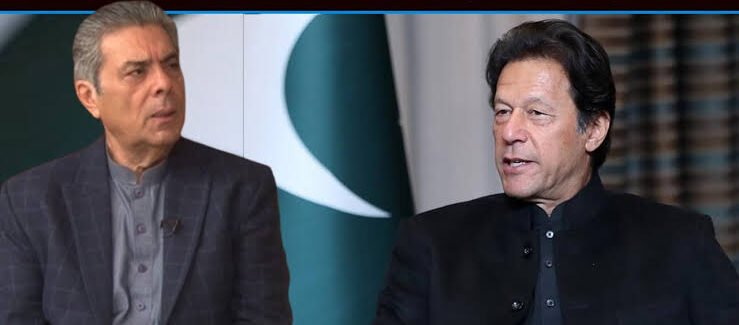
Pakistan’s security forces have shifted their counter-terrorism strategy in 2025, increasingly favouring intelligence-led military operations that officials and analysts say have delivered heavy blows to militant networks while limiting large-scale ground offensives that risk civilian casualties.
Government and security sources say the change in tactics followed a year in which the country saw a marked rise in terrorist incidents — including one of the deadliest attacks of recent years on 11 March 2025, when an assault on the Jaffer Express in Balochistan, blamed on the Baloch Liberation Army, left 64 people dead, including more than 30 soldiers.
Scope of the violence Officials recorded hundreds of terrorist incidents across Pakistan so far this year. In September 2025 alone, 69 terrorist incidents were reported, resulting in 135 fatalities and 173 wounded — a figure described by security analysts as lower than August but still showing sustained lethality. Overall, the third quarter of 2025 (July–September) saw 294 attacks, with 430 killed and 554 wounded — an increase of about 20 per cent in attacks and 45 per cent in fatalities compared with April–June 2025.
Regionally, the burden of violence has been concentrated in Khyber Pakhtunkhwa and Balochistan. In 2025 Balochistan recorded 21 attacks, including four suicide bombings, which killed 79 and injured 122. Khyber Pakhtunkhwa suffered 25 attacks with 33 fatalities, many of them security personnel. Former tribal districts recorded 20 attacks and 21 deaths. Sindh reported three minor incidents, while Punjab, Gilgit-Baltistan, Islamabad and Azad Kashmir remained largely unaffected during the period covered.
Intelligence-led response In response to the deteriorating security picture, the army intensified counter-terrorism activity in September, launching 47 major operations nationwide. Military briefings report 197 militants killed, 15 arrested and 58 wounded during that month’s operations; 23 security personnel and 24 civilians lost their lives in the same operations.
The largest concentration of anti-militant operations took place in Khyber Pakhtunkhwa — 22 actions that, according to official tallies, killed 88 militants and 11 security personnel. Operations in the former FATA region numbered 18; authorities say 83 militants were killed there, with 12 security personnel and 24 civilians also among the fatalities. In Balochistan seven operations reportedly killed 26 militants and resulted in 10 arrests. In Bajaur, the so-called “Operation Sarbakaf” cleared 11 villages of militant presence and allowed the return of displaced local populations, officials added.
Why the shift? Defence analyst Brigadier (retired) Asif Haroon stated that Pakistan’s counter-terrorism operations in 2025 have been unusually successful — not because the threat has diminished, but because the army has adapted its methods. “While 2025 has been one of the deadliest years in terms of martyrdoms from terrorism, we have also never before in a single year killed 70, 80 or 100 militants in one day the way we have recently,” he said. Brigadier Haroon argued that Pakistan’s forces have upgraded capabilities — night-vision equipment, satellite communications and imagery, and drones — enabling precision, intelligence-driven strikes rather than the broad, high-intensity operations of 2009 or 2014 that risked heavy civilian casualties.
Analysts say the principal militant perpetrators this year include factions of Tehreek-e-Taliban Pakistan, the Baloch Liberation Army, Jamaat-ul-Ahrar, the Hafiz Gul Bahadur group and the so-called Majid Brigade.
Wider regional context Security sources and some analysts also pointed to simultaneously heightened tensions on Pakistan’s eastern and western borders. Senior commentators claim Pakistan engaged in short, sharp engagements in May and October 2025 that, they say, inflicted setbacks on adversaries in India and Afghanistan respectively. Such assertions remain politically sensitive and have been presented to The Scoop as official and analyst assessments rather than independent battlefield verification.
Longer-term challenge Tahir Khan, a journalist who covers Afghanistan and works with international organisations, told The Scoop that the underlying threat has evolved. He argued that large-scale operations in FATA, Swat and Bajaur between 2008 and 2014 had degraded militant capabilities, but policies since 2021 — including the reintegration of fighters from Afghanistan back into parts of Khyber Pakhtunkhwa — have complicated the security environment. “In the past the enemy was visible; today it is often indistinguishable from the local population. Attacking it risks civilian casualties and undermines the whole system,” he said, explaining why intelligence-precision has become the preferred option.
Outlook While military officials say intelligence-led tactics have degraded militant networks and reduced the need for mass operations, analysts warn the security landscape remains brittle. Persistent violence in Balochistan and Khyber Pakhtunkhwa, the return and dispersal of battle-hardened fighters, and regional spill-overs mean Pakistan’s security forces will likely continue a mix of targeted, intelligence-based strikes and local stabilisation efforts aimed at protecting civilians while disrupting militant command and control.








